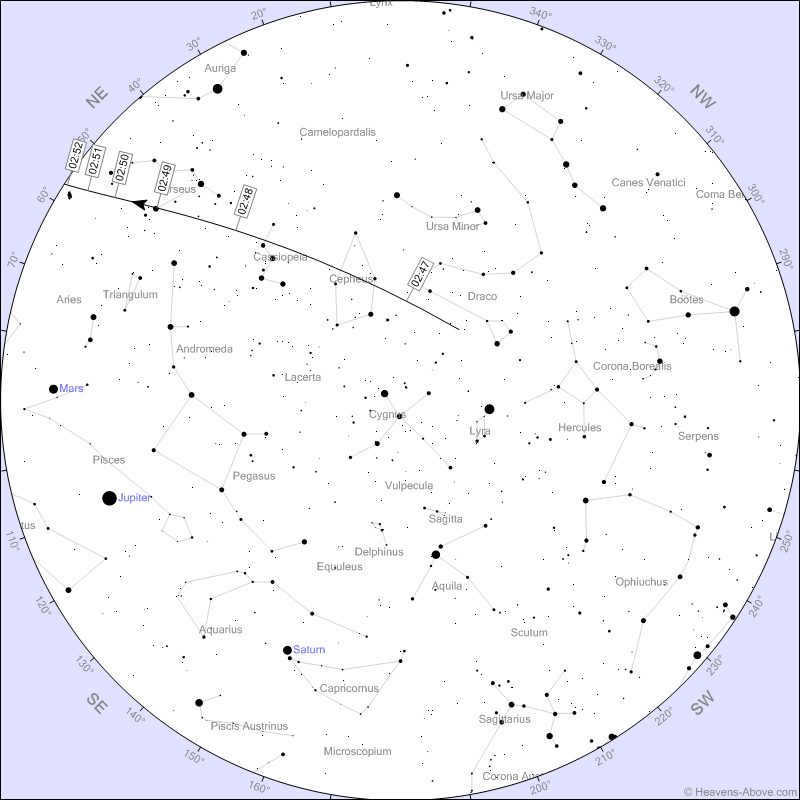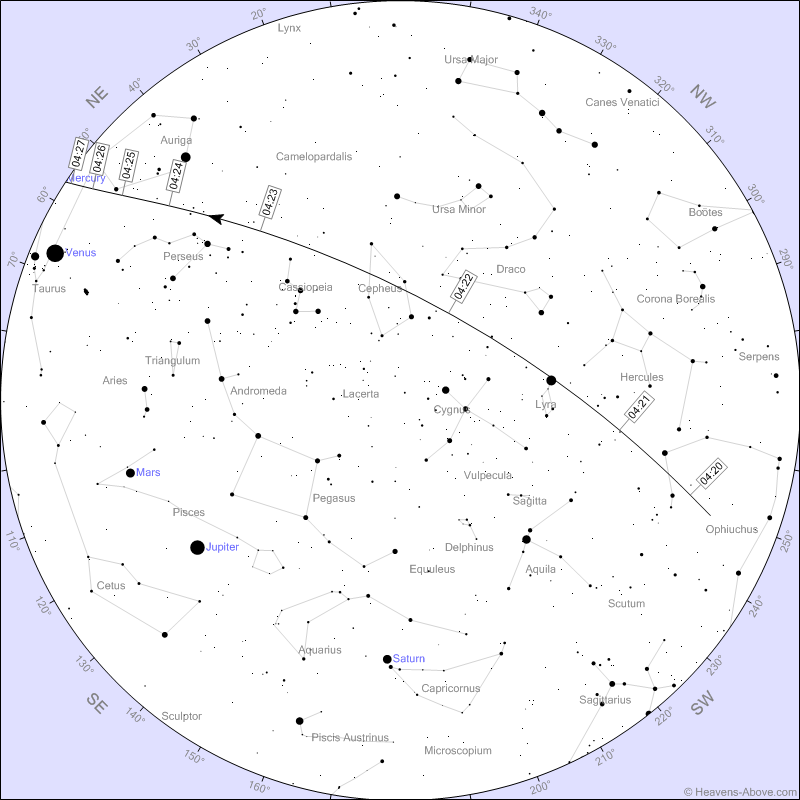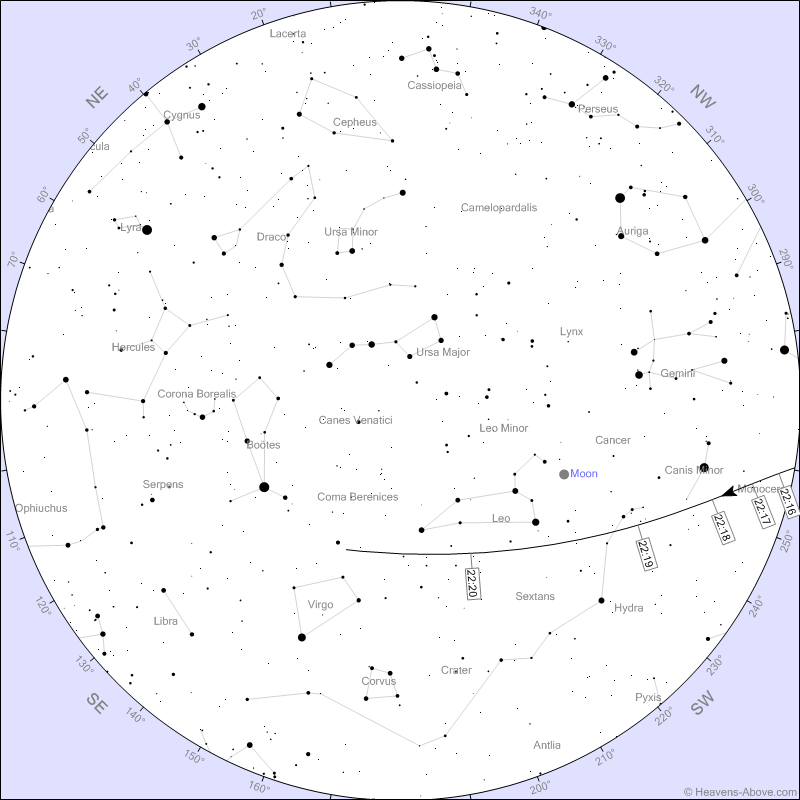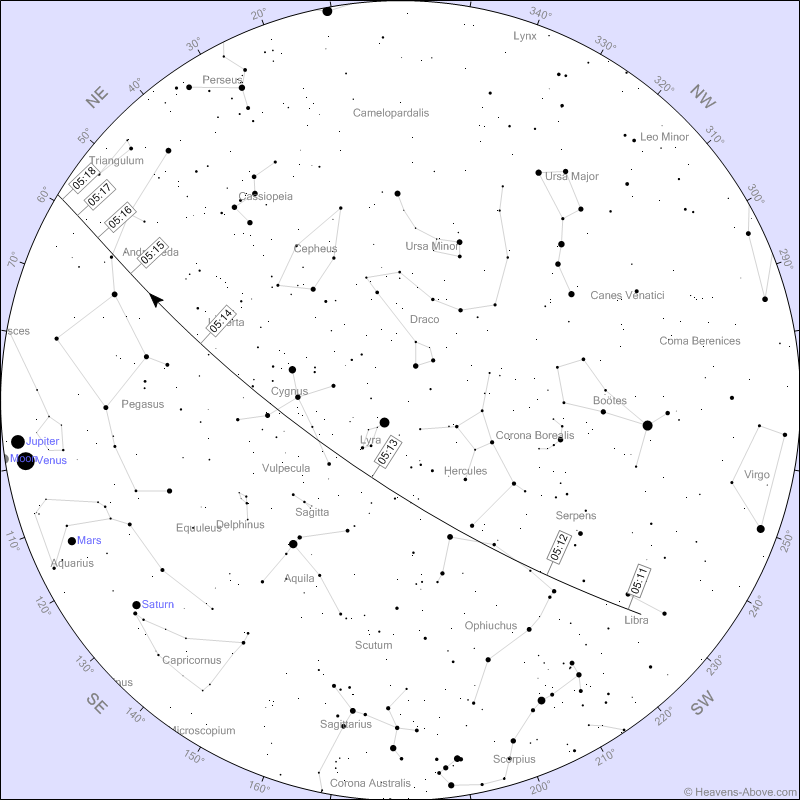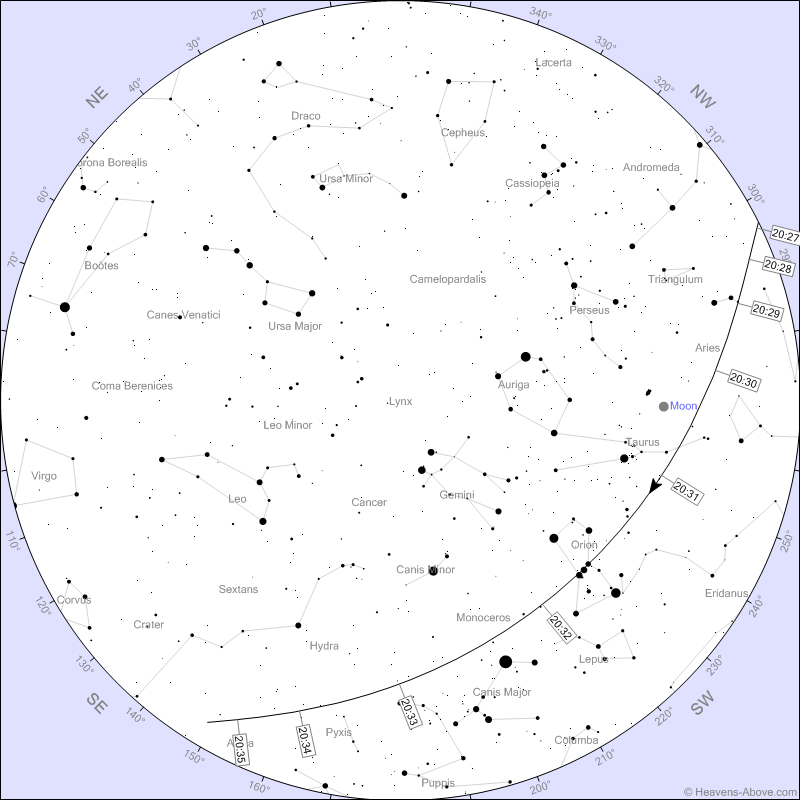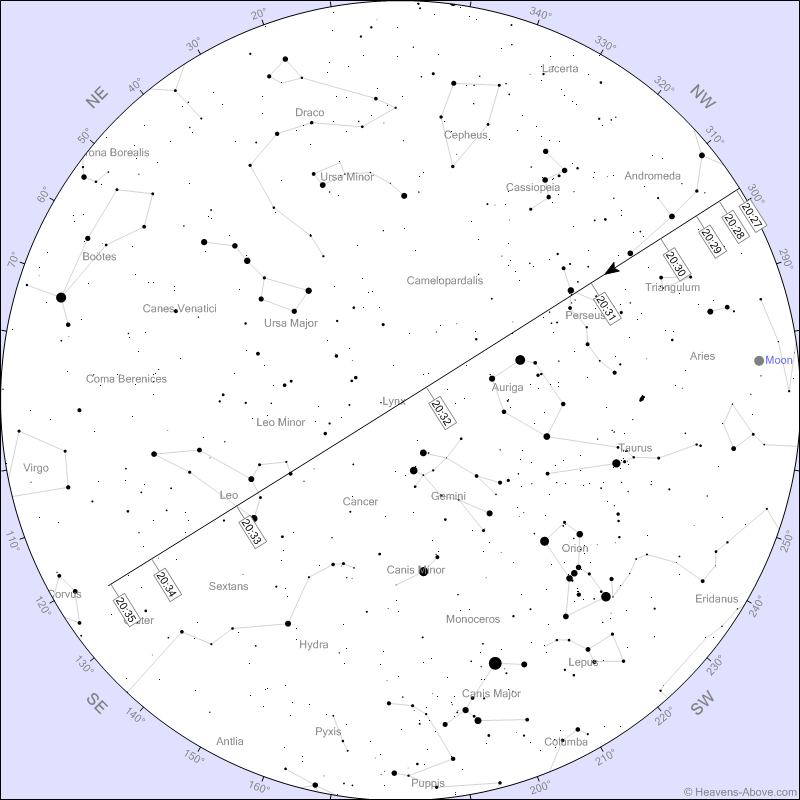Greater Toronto Area Space Station Flyovers for the week of July 3rd, 2022
As shown above, on Monday, July 4, 2022 from 2:47 to 2:50 am EDT, the International Space Station will be visible flying over the GTA in a bright pass, exiting Earth’s shadow nearly overhead in the northwestern sky, then flying through the stars of Cassiopeia and finally setting in the northeastern sky. (courtesy: Heavens-above.com) Artificial…
Read more
